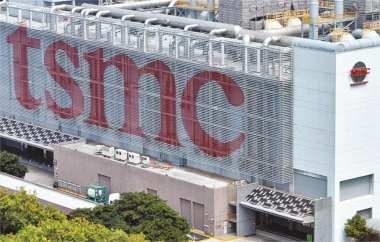
In response to escalating demand for locally manufactured semiconductors in the United States, TSMC is expediting the construction of its second fabrication plant (P2) in Arizona. According to industry sources, the new 3nm-capable facility is now scheduled to break ground in April 2025—sooner than previously planned—with equipment installation targeted for Q3 2026 and volume production projected by 2027.
This accelerated pace compresses the fab development cycle to approximately two years, reflecting TSMC's commitment to fulfilling customer requirements and adapting to evolving U.S. policy conditions, including import tariffs. Equipment vendors note that while internal system integration and calibration typically require up to two years post-construction, TSMC is moving with exceptional speed relative to industry norms.
The rapid advancement of this Arizona-based site is expected to benefit engineering service firms from Taiwan that were involved in TSMC's first Arizona fab (P1). Companies with prior on-site experience, such as Han's Tech and Foxsemicon, are positioned to improve long-term profitability through more efficient deployment.
Industry participants also report that construction activities at P2 will begin to ramp up after mid-year, with specialized gas and chemical supply chains already securing new orders for North American operations. Analysts remain bullish on companies like Topco and Shengyi Technology, which are expected to benefit from this next phase of expansion.
Despite the aggressive timeline in the U.S., TSMC's advanced packaging capabilities continue to rely heavily on its established facilities in Taiwan. While two advanced packaging fabs have been proposed for the U.S.—starting with Arizona's AP1—factors such as workforce availability and regulatory approvals mean the first site is unlikely to break ground before Q3 2026. The facility will initially focus on SoIC (System on Integrated Chips), while CoWoS (Chip-on-Wafer-on-Substrate) packaging will remain based in Taiwan.
Industry observers highlight that building a fully operational semiconductor campus in the U.S. is a multi-year endeavor. With the expansive nature of the Arizona complex, full-scale production across all sites may not be achieved before 2029. In light of rising construction costs and robust AI-related demand, TSMC is expected to raise wafer pricing by 3–5% in 2026, with U.S. fab pricing potentially increasing by over 10%.
Taiwan remains a cornerstone in TSMC's global strategy. The company is currently developing nine new fabs and 11 production lines across the island. Key projects include its 2nm node and growing advanced packaging capacity. Notably, the Kaohsiung F22 plant's second phase is scheduled for equipment move-in during Q3 2025, followed by the third phase's completion in Q1 2026. Advanced process R&D will also continue to be concentrated in Taiwan.




